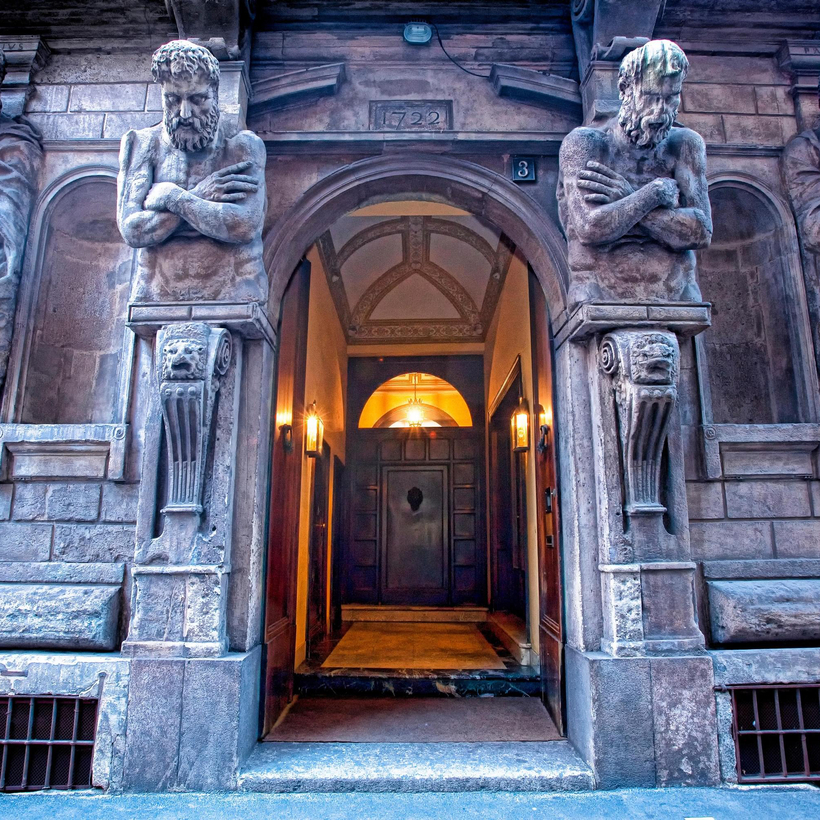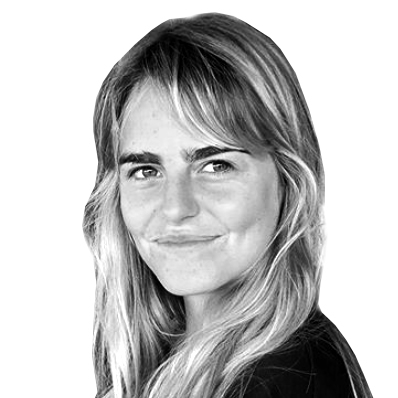The style set once again descended upon Milan for Fashion Week, overwhelming the city with its endless rotation of breakfasts, lunches, dinners, and after-show parties, in venues from the Duomo to the Solari neighborhood.
But this season, the city’s sciure (well-to-do ladies) remained entirely unfazed. Instead of complaining about the crowds, most were preoccupied with something else: the status of their pending club-membership applications.
Italy’s most circulated daily newspaper, Corriere della Sera, recently wrote that the new buzzword in town is “applicare” (apply), calling members-only clubs the ultimate “status symbol.”
And the Wilde, located in the former villa of Gianni Versace’s older brother, Santo, is the latest application on everyone’s pile.

Set to open next month, the new members-only club is backed by major Sant Ambroeus investor Three Hill Capital Partners, who purchased Versace’s 1950s, modernist relic for $36 million. Gary Landesberg, who’s renowned for revitalizing Mayfair’s historic Arts Club (members include Pippa Middleton and Beyoncé), will be spearheading the operation.
After a renovation by the young Paris-based architect Fabrizio Casiraghi, the Wilde houses three restaurants (Italian, Japanese–Latin American fusion, and Mediterranean), co-working spaces, private rooms, a rooftop, and a swanky cigar lounge.

Chatter about the club first started to circulate in June, when the Wilde began reaching out to potential members as a part of its publicity campaign. “We’re not having a big, splashy launch event,” Ben Pundole, the Wilde’s chief brand-and-marketing officer, says, “but instead a series of more targeted dinners and aperitivo nights and talks.”
These events have included mezcal Negronis at a new mixology bar in the up-and-coming Corso Genova neighborhood and arancini and champagne at the historic Pasticceria Cucchi. On Instagram, the Wilde posted photos of little-known streets, monuments, and shops around Milan.

It’s not the city’s first high-profile club opening. In January 2022, the hospitality group Salva Tu Alma unveiled Ronin, a sleek, four-story, Tokyo-themed space complete with karaoke rooms, a 90s-style arcade, an izakaya restaurant, and bars serving wasabi-infused margaritas. Last year, Katsu Nakaji, the fourth-generation chef at Tokyo’s acclaimed Hatsune Sushi, took up a two-month residency in the omakase room. Membership goes for around $700 a year.

Then, in October of that year, Casa Cipriani took over a building on Via Palestro, where the city’s businessmen now head each night for tagliolini gratinati and Bellinis. Memberships can go for as much as $5,000 a year.
Instead of choosing among these clubs, many are opting to join all three, paying nearly $10,000 a year in annual fees. The Wilde expects to amass 2,500 members by 2030. Casa Cipriani has a months-long waitlist. And two more clubs—New York’s Core Club and Soho House—are planning to open next year.
“There are three clubs and two on the way,” a Milan-based consultant at Roland & Berger says, “no one in Milan is used to being left out. So they’ll just join all of them.”
For context: there are an estimated 12,600 high-net-worth individuals in Milan, whose total population is a little more than a million.

It’s such a small city,” a Milan-based restaurateur, says, explaining his decision to join three clubs. “We hardly ever go out. So I don’t want to be in a situation where I can’t be there.”

While the rise of members-only clubs in London, Paris, Los Angeles, New York, and beyond is hardly news, their recent success in Italy is surprising. Historically, the few Italian clubs that existed were stuffy hideaways for old-world aristocrats.
Milan’s most prestigious members-only club, Il Clubino, was founded by mechanical engineers Giulio Ceretti and Carlo Vogel and the chevalier Gerardo Maino in 1901. It’s still men-only, and its 600 members must wear a suit and tie to enter the cavernous space in Casa Degli Omenoni. Il Clubino’s restaurant has served the same buttery risotto since it opened. And that’s part of its charm.
“If you think you’re coming here to do business with the members, you are very mistaken,” the club’s president, Giovanni Sforza, said in his welcome speech to new members in 1980. Instead, like other old-world establishments, from New York’s Knickerbocker Club to Gstaad’s Eagle Ski Club, Il Clubino serves as a home away from home: No shop talk or networking allowed. It’s a safe place for a whiskey nightcap among gentlemen.
Instead of choosing among these clubs, many are opting to join all three, paying nearly $10,000 a year in annual fees.
Acceptance into Il Clubino is decided by a vote. A single “no” vote by a member can outweigh as many as five “yes” votes. The goal is to keep Il Clubino as restrictive as possible.
The selection process for new clubs such as the Wilde, however, is completely different. Members have no say about who gets through the door. Rather, club owners determine acceptance, aiming to curate a group of like-minded strangers instead of a roomful of people who already know each other. “We’re looking to create a very eclectic membership base,” says Landesberg.
This is especially appealing to the ultra-high-net-worth expatiates who have recently moved to Milan to reap the benefits of Italy’s tax incentives. (Two thousand have arrived since 2016.) It’s a trend Landesberg acknowledges.
“If my new friends are signing up,” a Belgian jewelry designer who moved to Milan last year says, “then I think it’s a no-brainer.”
And, unlike in the parlor of Il Clubino, the financial incentives of social networking are an essential part of the Wilde’s allure. “I think it might be good for business,” a lawyer who just applied to be a member says.
“Everyone wants to be somewhere exclusive,” a friend of mine who has signed up to Ronin, Casa Cipriani, and the Wilde points out, “but no one wants to forfeit the attention that comes with showing up.”
Elena Clavarino is a Senior Editor at Air Mail


